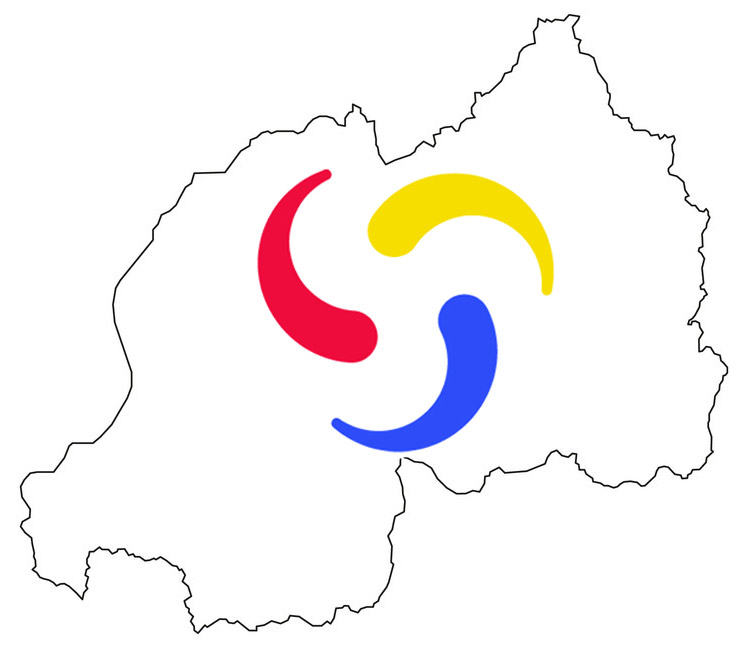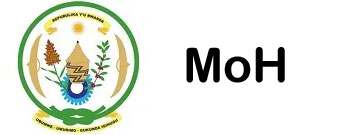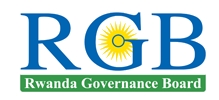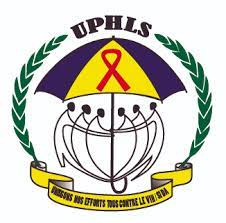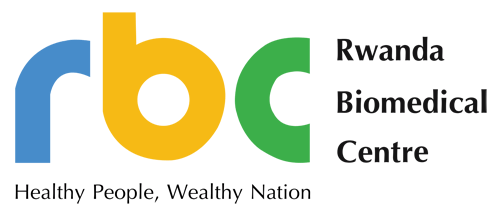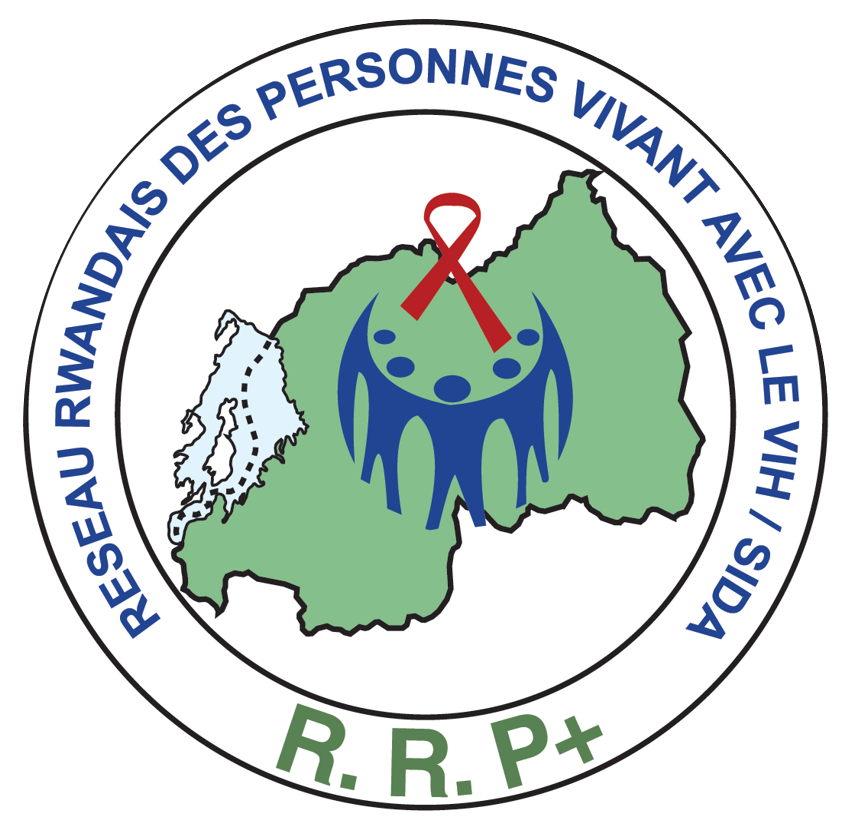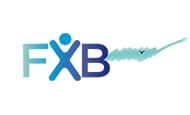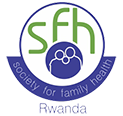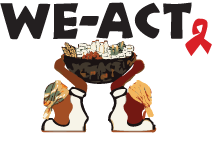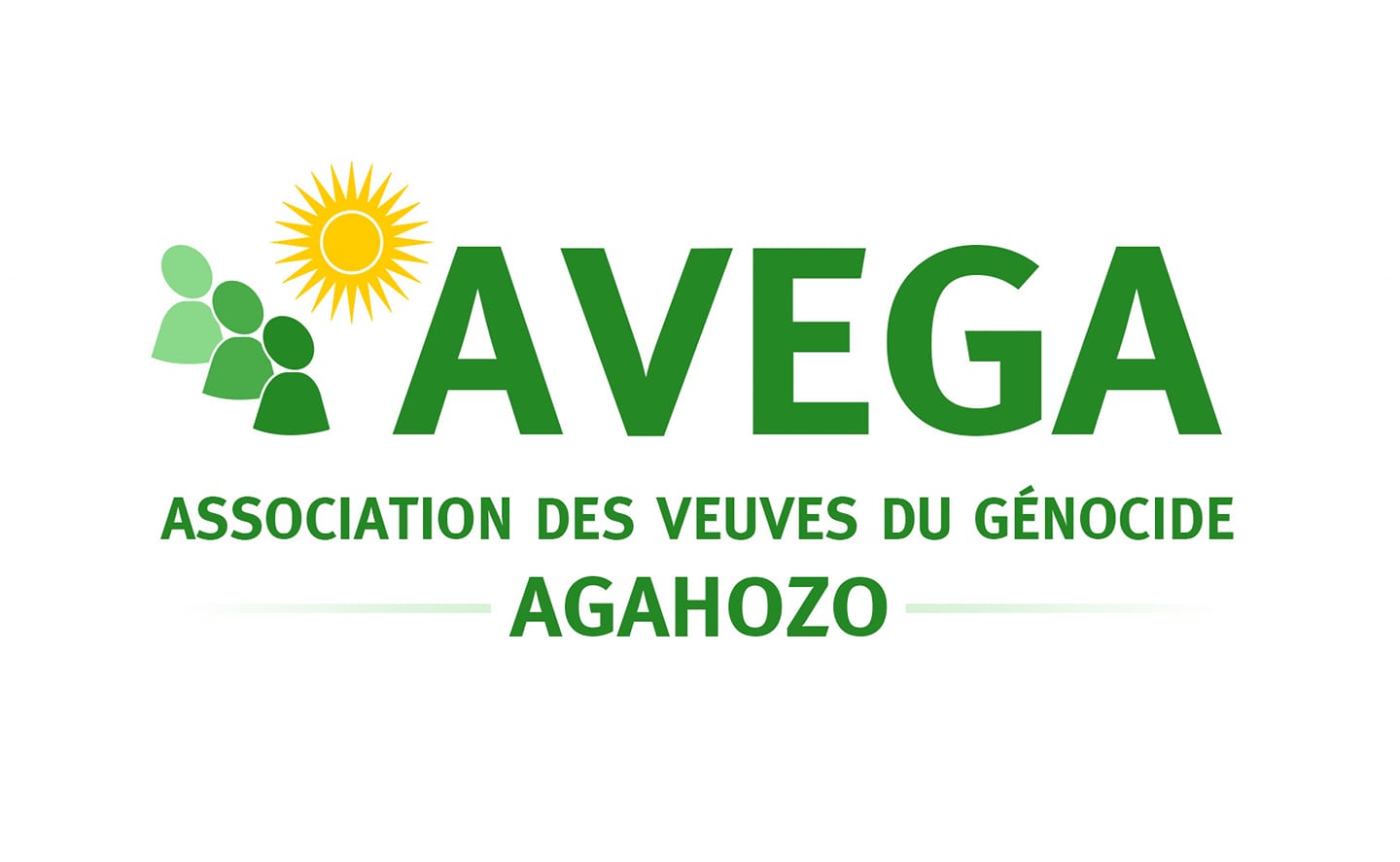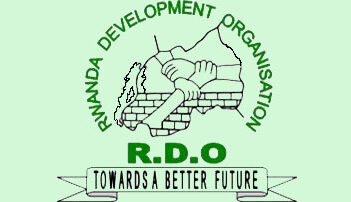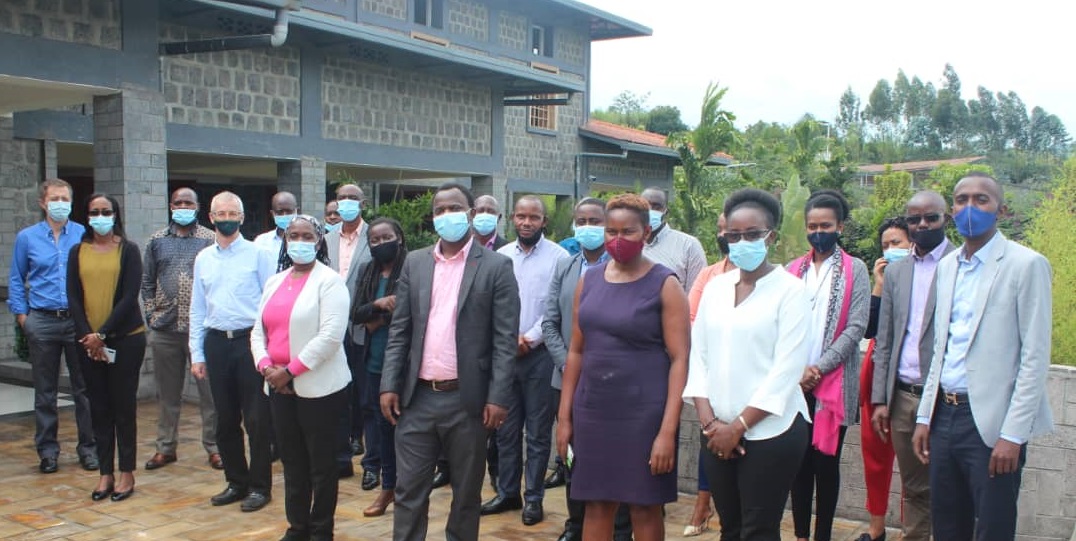
Partners
The mission of the Ministry of Health is to provide and continually improve affordable promotive, preventive, curative and rehabilitative health care services of the highest quality, thereby contributing to the reduction of poverty and enhancing the general well-being of the population.
Go to Website
The Global Fund is a partnership designed to accelerate the end of AIDS, tuberculosis and malaria as epidemics. As an international organization, the Global Fund mobilizes and invests more than US$4 billion a year to support programs run by local experts in more than 100 countries.
Go to Website
The Joint United Nations Programme on HIV/AIDS (UNAIDS) leads and inspires the world to achieve its shared vision of zero new HIV infections
Go to Website
WHO's primary role is to direct international health within the United Nations' system and to lead partners in global health responses.
Go to Website
The Rwanda Governance Board (RGB) is a public institution established by law N°56/2016 of 16/12/2016, generally mandated to promote good governance principles and monitor service delivery across public and private sector institutions as well as Civil Society Organizations.
Go to Website
Enabel, the Belgian development agency executes the Belgian governmental cooperation.
Go to Website
Eradication of all barriers that could compromise the behavior change of Rwandan population by way of which men, women, youth and children are protected from HIV/AIDS, NTDs and are all able to partake in the same rights as all citizens.
Go to Website
The Umbrella of Organizations of Persons with Disabilities in the fight against HIV&AIDS and for Health Promotion (UPHLS) is a non-governmental entity operating in Rwanda that was created in 2006 as an Umbrella Organization of Disability Organizations and grassroots’ self-help groups of persons with disabilities.
Go to Website
Rwanda Biomedical Centre (RBC) is the nation's central health implementation agency. RBC was established in 2011 through a merger of fourteen key health institutions. RBC strives to improve the health of the Rwandan population by providing high quality, affordable and sustainable health care services. This is accomplished through the implementation of preventative, rehabilitative, and curative health interventions.
Go to Website
The Rwanda Interfaith Council on Health (RICH) is a network of religious denominations for health promotion. The members of RICH are grouped in six confessional groups which are The Catholic Church represented, The Province of the Anglican Church in Rwanda, The Protestant Council of Rwanda, The Evangelical Alliance of Rwanda, the Rwanda Muslim Community, Fédération des Églises Protestantes Réformées au Rwanda (FEPR)
Go to Website
ANSP+ mission is to strive for the quality of life of those infected and directly affected by HIV/AIDS in Rwanda and fight against the spread of HIV.
Go to Website
At the time of creating RRP+, many people in Rwanda lacked knowledge about HIV and linked HIV with immoral behavior. Consequently, this fueled HIV related stigma and discrimination against people infected and affected by HIV. To change this situation, representatives of 175 associations of PLHIV from across the country decided in March 2003 to form a network of people living with HIV (RRP+). Although RRP+ has initially been created for an unlimited period in accordance with law No 20/2000 of July 26th 2000, this was revised by law n° 04/2012 of February 17th, 2012 governing the Non-governmental Organizations.
Go to Website
Health Development Initiative is a Rwandan NGOs started in 2005 with the aim of working towards a society where every person enjoys the highest standards of health and wellbeing.
HDI’s has a mission to empower individuals, communities and institutions to promote community health and development. Through a rights-based approach, HDI builds sustainable alliances to advocate for and support health-friendly policies and services for every Rwandan regardless of social, cultural, or economic status.
Go to Website
FXB Rwanda started in1995 under FXB International created in 1989. In 2012, FXB Rwanda was registered as a local Non-Governmental Organization and continued to be affiliated to FXB International.
In the last 26 years, FXB Rwanda has success- fully implemented more than 45 programs with the aim of lifting up exposed communities from extreme poverty and vulnerability. Through its implemented programs, FXB Rwanda has directly and indirectly supported more than 1,3 million of beneficiaries and reached more than 3,500,000 community members all across Rwanda.
FXB Rwanda’s target beneficiaries are mostly Orphan and Vulnerable Children (OVC) from poorest families living or affected by HIV/AIDS. To attain highest impacts, FXB Rwanda collaborate with different stakeholders: community health workers, community based volunteers, ‘Inshuti z’Umuryango’, local leaders, and different governmental and non-governmental actors.
Go to Website
Society for Family Health (SFH) Rwanda was established in 2012 following a partnership arrangement between Population Services International (PSI), the Government of Rwanda (through the Ministry of Health) and USAID. Improving the health of the Rwandan communities is our core goal. We provide the communities with readily accessible life-saving products, accurate health information, and services that empower communities to make informed and healthy choices. We work in partnership with the Local Communities, Community Based Organisations and Partners to change social and behavioral norms. We work to make sure that good health is accessible to all. SFH’s major interventions are centered on promotion of behavior change practices through innovation in health communication and social marketing.
Go to Website
WE ACTx started in 2003, when a group of frontline AIDS physicians, activists and researchers responded to an urgent global appeal from Rwandan genocide survivors for help accessing AIDS medications.
Today, a dedicated team of Rwandan health care providers operate their own local NGO, WE-ACTx for Hope, with the support of WE-ACTx, grassroots community partners and Rwandan government health agencies
Go to Website
AVEGA is a non-profit organisation established in 1995 in the aftermath of Tutsi Genocide.
Association des Veuves du Genocide (AVEGA) or the Association of the Widows of Genocide is a Rwandan association formed to help widows, orphans and others who lost family members in the 1994 Rwandan genocide. AVEGA was founded in October 1995 by 50 women who had survived the killings but lost their husbands. One of the organization's founders[1] has stated that she believes that "too much is expected of the victims" who, in her view, need first to be reconciled with themselves and their losses. Restitution and reparations are essential prerequisites before any consideration of reconciliation with the perpetrators.
Go to Website
Ihorere Munyarwanda Organization (IMRO) is Non Governmental Organization that was founded in 1999 and legally operating in Rwanda. We were granted legal personality No 03/11 and have fulfilled all requirements for compliance with the new Law number 04/2012 of 17th February 2012 governing the Organization and Functioning of National Non Governmental Organizations/RGB-Rwandan Law.
IMRO has 20 years experience implementing interventions in the context of Poverty Alleviation, Gender Equality, Nutrition, GBV, HIV, Education, Environnent ,Peace Building ,Health Promotion, accountability, Advocacy and Networking in order to improve lives of IMRO’s beneficiaries at individual, family and, community levels for sustainable social economic development.
This is achieved through broad consultation, partnership and transparent management with different Stakeholders.
Go to Website
Faith Victory Association ( FVA) started in 2003 a Rwandan Religious-Based Organization legally operating in Rwanda as a Non-Government Organization with a legal status no 13/11.
FVA is one of the largest Rwandan NGOs with a strong mandate of working together with communities in order to facilitate processes that assist in eradicating poverty,child protection, preventing violence,preventing and controlling diseases especially HIV/AIDS, environmental protection, promoting equality within the communities and developing capacity building programs aimed at transforming the society.
Go to Website
Rwanda Development Organisation (RDO) is a Non-Government organization established in 1995 to support the initiatives of Rwandese in social and economic development with a vision to see Rwandans in control of their own destiny, enjoying a good standard of living and sustainable development. RDO was assigned with the mission of empowering partner communities including those vulnerable to improve their human capital, achieve food and nutrition security, and establish market linkages in a sustainable natural environment. In this way, communities build better and sustainable socio-economic development.
Go to Website
Pro-Femmes/ Twese Hamwe (PFTH) is an Umbrella of Rwandan Civil Society Organizations aiming at the advancement of women's status, peace, and development. It was established in October 1992, and currently represents 53 member organizations within the country.
Since its inception, PF/TH has carried out its role of advancing women’s cause with honor and integrity; implementing various projects all tailored to improve the status of Rwandan women and girls so as to empower them to play their rightful role in social-economic development of our country
Go to Website
It started in 2001, Protection and Care of Families against HIV/AIDS (PACFA) was established as a project under the Office of the First Lady, to mobilize resources desperately needed in the fight against HIV/AIDS. This initiative primarily focused on providing a holistic approach for dignifed lives of families, including women deliberately infected with HIV/AIDS during the Genocide against the Tutsi.
Over the years, PACFA grew to embrace more programmes and in 2007, it changed its name to Imbuto Foundation to reflect its evolution and new fields of activity, through programmes in health, education, youth and economic empowerment.
Go to Website
Association de Solidarite des Femmes Rwandaises (ASOFERWA) is a non- governmental organization (NGO) created in 1994 just after the 1994 genocide; operating on the territory of Rwanda. By the 1994 genocide against Tutsi, Rwanda was stricken by a misfortune, which plunged the whole country in disastrous situation with various socio-economic consequences.
Go to Website
The University of Rwanda has a mission to support the development of Rwanda by discovering and advancing knowledge, committed to the highest standards of academic excellence, where students are prepared for lives of service, leadership and solutions. The College of Medicine and Health Sciences is part of the University of Rwanda; whose formation was put in law on October 15th 2013.
Go to Website
The Centers for Disease Control and Prevention (CDC) established an office in Rwanda since 2002 to support HIV/AIDS prevention and control through the U.S. President’s Emergency Plan for AIDS Relief. CDC’s support expanded in 2006 to include interventions for malaria under the U.S. President’s Malaria Initiative.
Go to Website
The National Youth Council was created by the Law n° 24/2003 of 14/08/2003 as a platform that provides opportunities for the youth to share ideas for self and national development. Rwandan Youth is any person aged between sixteen (16) and thirty (30) years.
Go to Website
The National Child Development Agency (NCDA) is a newly Government institution established by the Presidential Order N° 083/01 of 28/08/2020, NCDA is a merger of the former National Commission for Children (NCC) and the National Early Childhood Development Program (NECDP). Its main office is in Kigali.
Go to Website
The Ministry of Finance and Economic Planning (MINECOFIN) was created in February 1999, when the Ministry of Finance and the Ministry of Planning were combined. It has mission to raise sustainable growth, economic opportunities, and living standards of all Rwandans.
Go to Website
